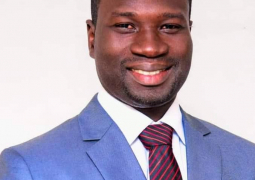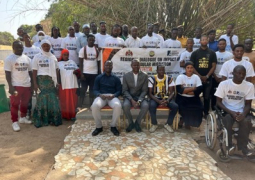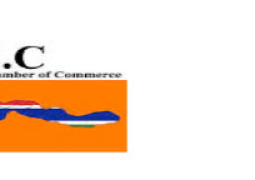
In The Gambia, children below the age of eighteen are still forced into marriage by either their parents or close relatives despite the law against the practice.
The country banned child marriage in 2016, with tough penalties for those who are guilty.
Child right groups, Girls Not Brides, reports that 30% of girls in The Gambia are married before the age of 18 and 9% are married before their 15th birthday.
Halimatou Cessay, an advocate against child marriage said despite the ban on child marriage in The Gambia, the practice is still rampant in the country, saying in most cases it occur in family settings where no one cares to report about the age of the child to the relevant authorities.
“No one cares about how old the bride is especially looking at her physical structure. People assume that she is of age.”
She stated that since the law is dormant, sensitization should be strengthened so that people will be mindful of such things and be able to make it their business to find out the age of the bride to know if it is child marriage and report to the relevant authorities.
“The police live amongst the people in the community and should be able to know and implement the law,” she added.
She noted that children are treated anyhow in The Gambia because people care less about child rights and protection.
She pointed out the issue of children selling on streets when they should be in school as well as children being sent to garages to learn skills at a tender age where they could be abused and go through a lot in the hands of adults.
“When you visit night clubs they don’t care whether it is a minor, they just allow children to enter the club. Even the police arrest children and put them together with adults in the same cell thereby exposing them to violence.”
The child rights defender described the way children are treated in The Gambia as very bad.
Lamin Fatty, National Coordinator of Child Protection Alliance (CPA) highlighted that there are lot of gaps with regards to child protection in The Gambia, in terms of law enforcement to create a conducive environment for children thereby resulting to them being abused daily.
He said CPA is a civil society organization that complements government efforts in terms of capacity building of relevant stakeholders as well as organize community sensitization but also serve as a community watchdog.
He highlighted the importance of data in addressing some of the issues but also holding the state accountable as the duty bearer to ensure that all rights enshrined in the Children Act, African Charter or UN Convention on the Rights of Children are enforced and implemented but also in line with regional and international instruments.
The Gambia banned child marriage in 2016, with tough penalties on those who breach the ban, but Mr. Fatty observed that Sharia law is in contradiction with the constitution on child marriage even though the constitution is the supreme law and should be able to ensure the child is not engaged into child marriage.
He said the Children’s Act and the establishment of the Children Parliament are commitments, but the commitment should be more driven to engage the state more to make a greater investment in children because you cannot implement policies if you do not have the proper investment.
“I do not think we are ready as a country because a country that is ready to champion the cause of children must have proper data that will give you the situation and analysis of children to ensure you prioritize investment. Our national budget commits only less than 3% to issues of children,” he said.
He said unless the government takes the leading role in children’s protection and development the country has a long way.
Fanna Maram Gaye, a senior social welfare officer at the Department of Social Welfare said child marriage and FGM/C are still predominant issues in Gambian societies as the laws are being ignored.
She pointed out that rape and sexual violence cases involving children are on the increase in the country with perpetrators walking free in society, highlighting the need to strengthen our system to achieve social justice for children.
According to her, the public should be reminded that there are existing laws protecting children with any person found wanting to face the full force of the law.
“Other issues included child sex tourism, child labor, child begging which are areas that we need to focus on as they are greatly affecting child of this country.
She said to protect children they have established child welfare units at the police, community child protection committees, and national child protection committee as well as have social welfare officers in the country.
She admitted that they have not developed any policies yet on child labor which is a huge gap for the government but said that they are working on restructuring the whole child protection system of the country.
She assured child marriage victims that they can always report to the nearest authorities and will be protected by the Department of Social Welfare as most police stations now have child protection officers.
“As a department, together with the police and ministry of Justice we want to assure that any perpetrator who is caught on the act or has involved themselves in child marriage will face the full force of the law,” she said.





